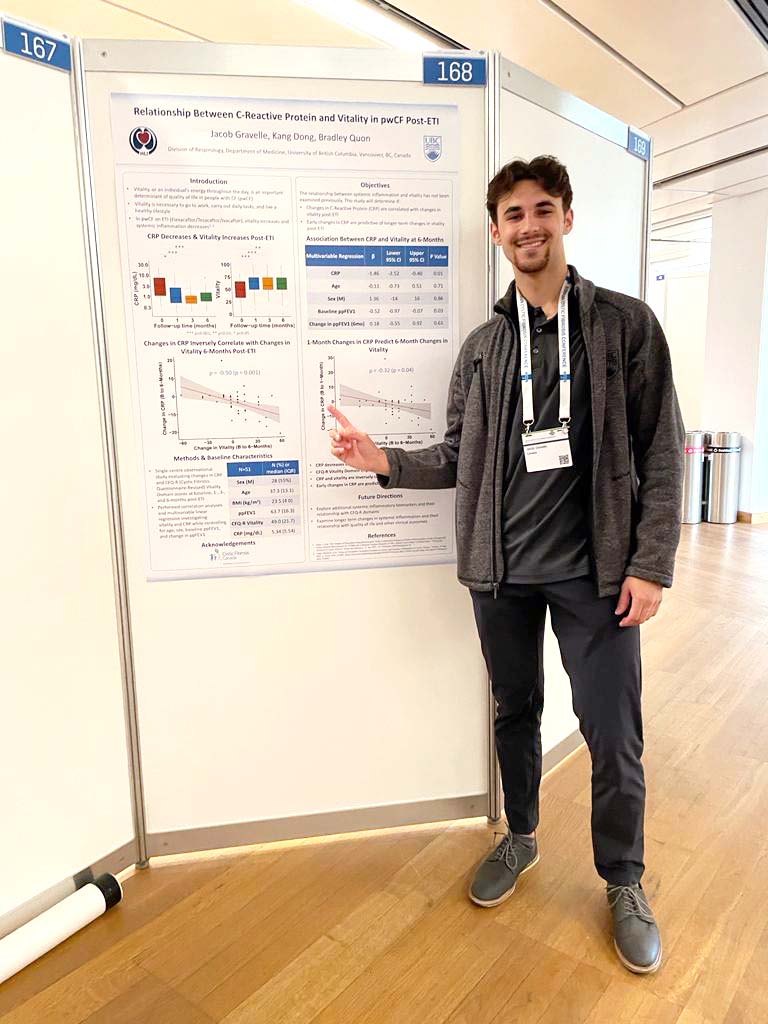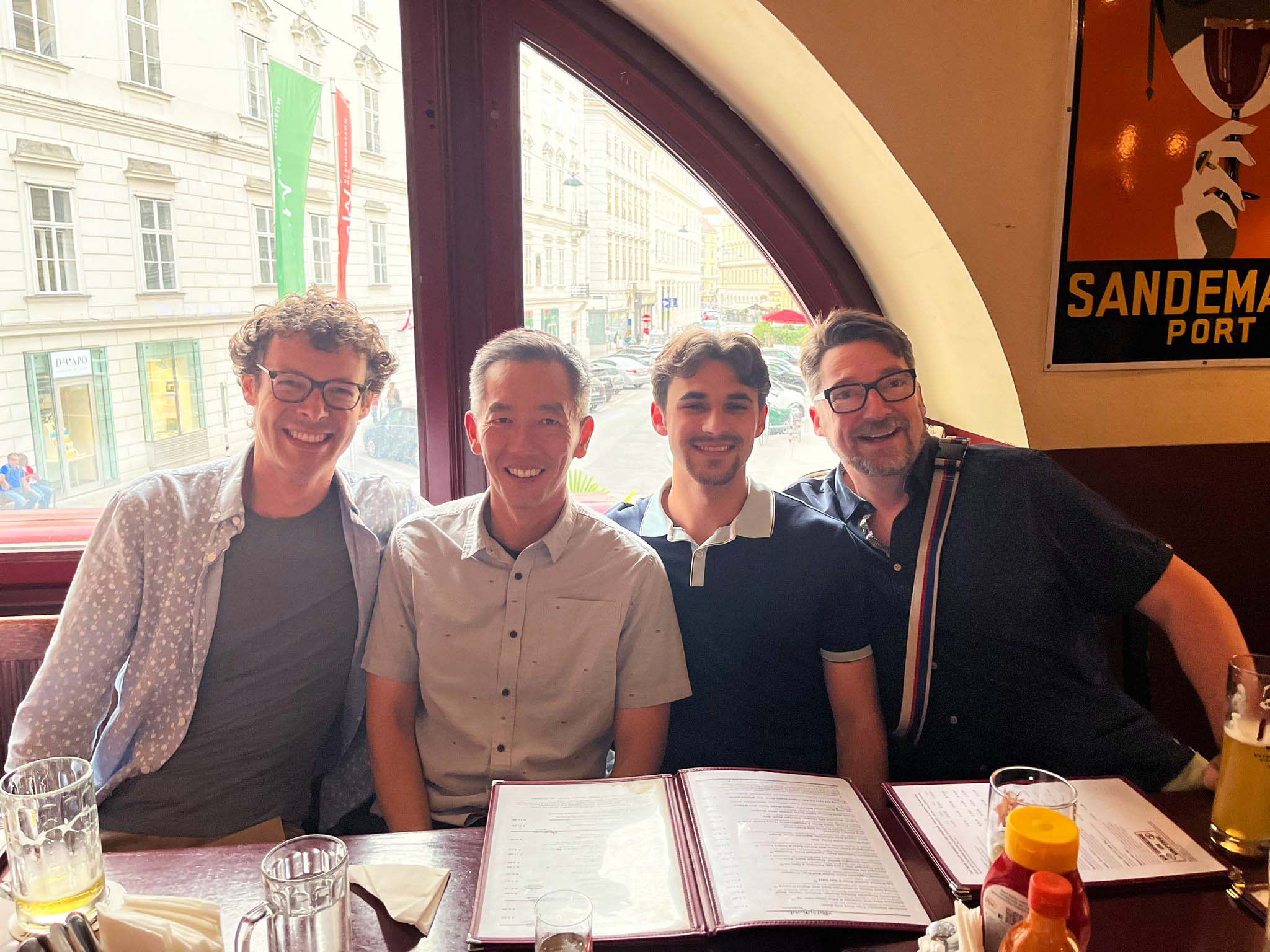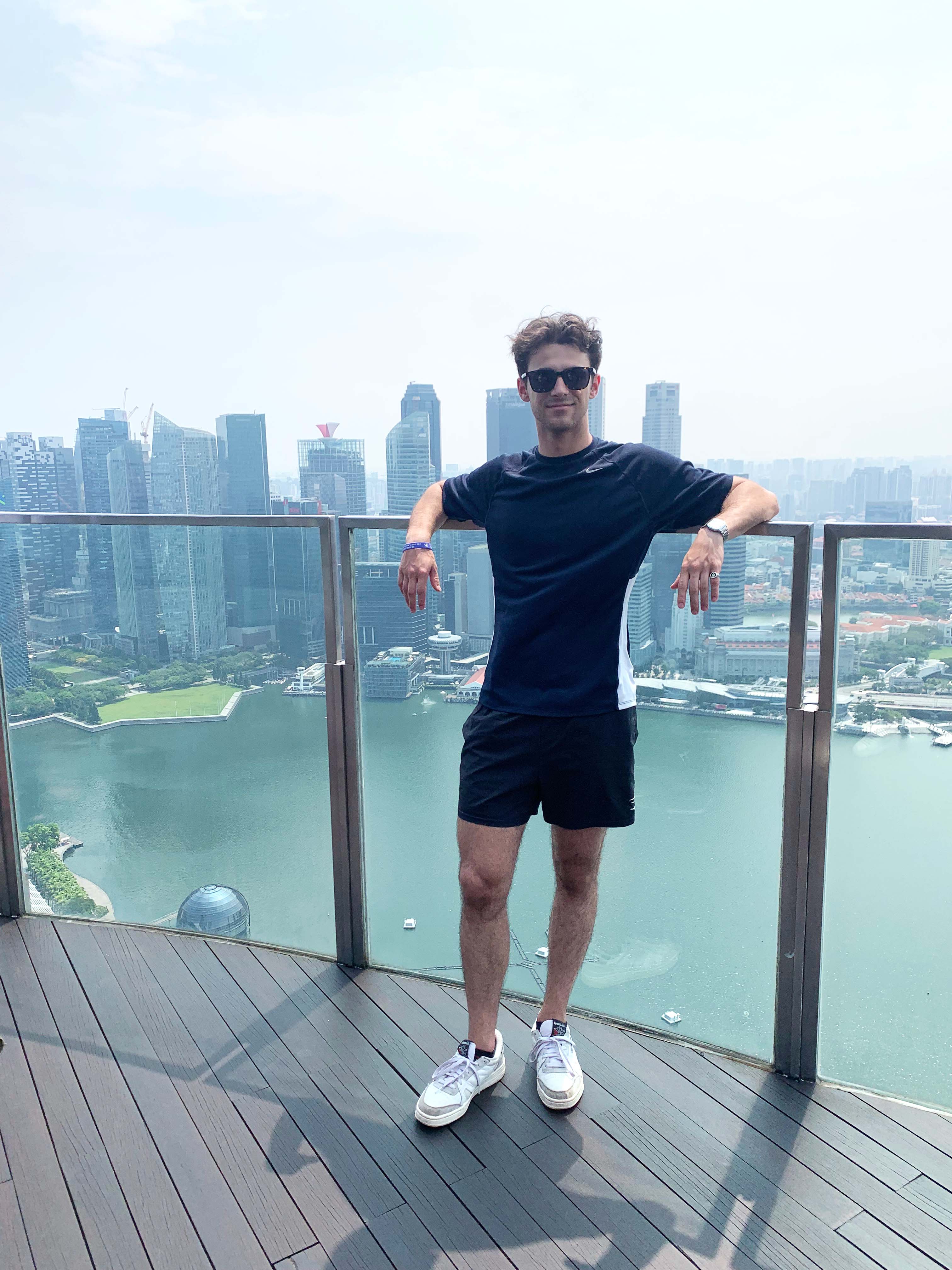"My co-op experience provided invaluable perspective on the concept of work. Rather than feeling compelled to immediately transition into pursuing my career full-time upon graduation, I’ve come to appreciate the variety of opportunities available to a new graduate.
As a result, I’m inclined to approach my post-graduation journey with a sense of openness and exploration. While I will certainly be working in some capacity, I recognize that in my current position, the path to fulfillment extends beyond the conventional notions of career progression."
What is your field of study and when will you graduate?
I’m studying Biochemistry and will graduate in May 2025.
Why did you choose to enroll in Co-op?
I chose to do co-op to gain research experience, build my professional network and to have more time to pursue my interests.
Also, after three years of school, especially during the pandemic, I felt burnt out and ready to try something new.
Which positions did you work during Co-op?
I held a twelve-month position working as a research assistant with Black Tusk Research Group at St. Paul's Hospital.
What was it like to work at a research group?
I worked in the Pacific Lung Research Center located within St. Paul’s Hospital, which was home to many different lung clinics.
Here, I worked alongside other research coordinators and numerous other co-op students, who fostered a vibrant and supportive work culture. While I had some flexibility to work remotely, I was drawn onsite because of my fellow peers.
I enjoyed this role, because I received a great amount of responsibility as the primary coordinator. I learned a great deal about organization, communication and strategic planning in order to successfully coordinate all of the studies.
Can you share anything about the projects that you worked on?
I coordinated over ten different academic research studies in the Cystic Fibrosis (CF) clinic at St. Paul’s Hospital.
For each of these studies, I coordinated study visits and collected clinical information as well as biological samples. Within my role, there was a good balance of interacting with patients as well as administrative work.
One of the main studies that I coordinated focused on the long-term effects of a new genetic modulator therapy. Instead of treating the symptoms of CF, this treatment corrects the defective protein that causes symptoms. Many people responded very well to the treatment and it was great to be a part of people’s lives as they became happier and healthier!
Do you feel like any courses best prepared you for your role? Which ones and why?
Through the genetics course BIOl335, I learned how mutations induce genetic diseases, how they are passed on and how they cause symptoms. This facilitated my swift comprehension of Cystic Fibrosis, its pathophysiology and how various treatment options worked.
What was your best achievement in Co-op?
During my co-op term as a Clinical Research coordinator at Black Tusk Research Group, I created a project to pursue over the course of the year, which was supervised by the physician whose studies I coordinated.
At the end of my placement, I submitted my research to the European Cystic Fibrosis Conference, where it was accepted for presentation. I had the honor of presenting my findings at the conference held in Vienna, Austria which was an unforgettable experience where I was able to appreciate and understand how science is communicated on an international level.

What did you feel most challenged by and how did you overcome it?
Surveys are an essential part of research and clinical care.
For patients to continue to receive access to the new effective modulator therapy, they had to consistently fill out surveys. However, the current survey distribution and collection methods in place suffered from data loss and low completion rates.
Recognizing this challenge, I developed a new workflow for administering and collecting surveys which used an online platform. Testing and refining this approach led to significantly increased completion rates and afforded individuals the convenience of completing surveys remotely, thereby enhancing the efficiency of their in-person visits.
Can you share your favourite experience while in co-op?
After the European Cystic Fibrosis Conference, we enjoyed dinner together at a nice restaurant. Each participant shared insights and reflections on their conference experience. This memorable evening facilitated not only the exchange of scientific knowledge, but also strengthened bonds among the team.
Witnessing people passionate about their work gathering together instilled a sense of optimism and anticipation in me, for a fulfilling and enduring career ahead.

How do you feel Co-op helped your personal growth?
Participating in co-op was a fantastic way to learn and grow, because it offered a glimpse of what life will be like beyond school.
Throughout my co-op experience, I honed my ability to balance social engagements, athletic pursuits and various other commitments. Furthermore, my co-op experience provided invaluable perspective on the concept of work. Rather than feeling compelled to immediately transition into pursuing my career full-time upon graduation, I’ve come to appreciate the variety of opportunities available to a new graduate.
As a result, I’m inclined to approach my post-graduation journey with a sense of openness and exploration. While I will certainly be working in some capacity, I recognize that in my current position, the path to fulfillment extends beyond the conventional notions of career progression.
Also, I felt that I, alongside my team members, were making a great difference in people’s lives. Collaborating on meaningful projects alongside like-minded individuals allowed me to realize the importance of the values held by fellow coworkers. When it’s time to assess prospective careers, I will be most critical in evaluating prospective work environments and ensuring that the values held by future colleagues will align with my own.
How do you feel Co-op has helped your career?
The connections I made during my co-op not only propelled me into future research endeavors through a directed studies program at UBC, but also prepared me for graduate school by having potential supervisors to study under.
Additionally, co-op provided a head start in accumulating valuable work experience, which I was able to leverage into further research positions. Equally important, this experience allowed me to develop essential skills to interact with patients, clinic staff and physicians as well as develop a great understanding of how research is conducted.
Which supports from the co-op program (workshops, practice interviews, etc.) do you feel best supported you? Can you talk about the direct impact on your career?
During my initial job search and after my co-op term, my path was not always clear.
Having conversations with my Coordinator helped me understand which options were available and what the best course of action would be moving forward.
What advice would you offer future Co-op students?
Take initiative in networking and actively connect with professionals in your field of interest.
While I secured a job listed on Scope, I met with several people within various fields in healthcare, including respiratory research, which greatly increased my chance of obtaining my position.
Also, I see many co-op students applying for too many positions which costs them valuable time and effort during their semester. I would focus on refining your job search and pursuing those to the best of your ability. I would also recommend chatting with friends in a business program to learn how to network effectively.
What are you looking forward to after graduation?
After graduation, I’m looking forward to a number of activities.
First, I’m planning on seeing the world and organizing a trip with friends. Second, I’m going to train for a triathlon which is something that I’ve always wanted to do, but haven’t had the time for. Last, I’m looking forward to reclaiming reading as a hobby. I feel that the amount of academic reading I do in school has made recreational reading feel like a chore. I can’t wait to dive into some great books!


